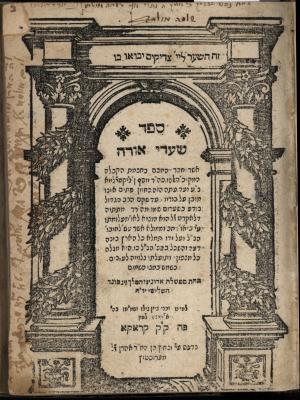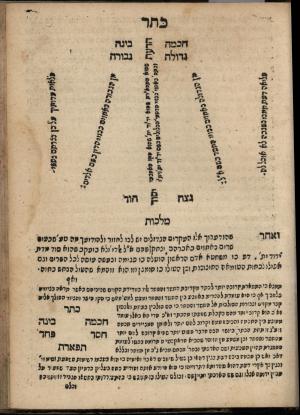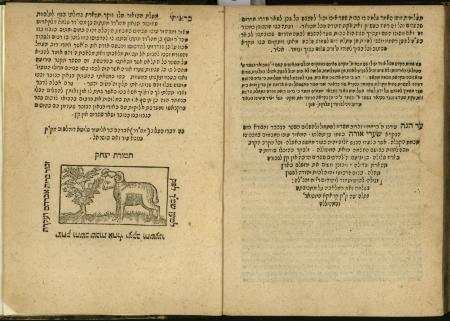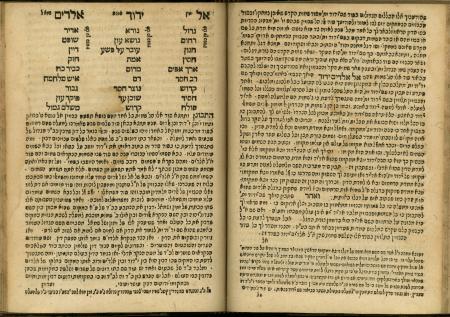Obj. ID: 36235
Jewish printed books Sha'arei Orah by Yosef ben Avraham Gikatilla, Cracow (Kraków), 1600
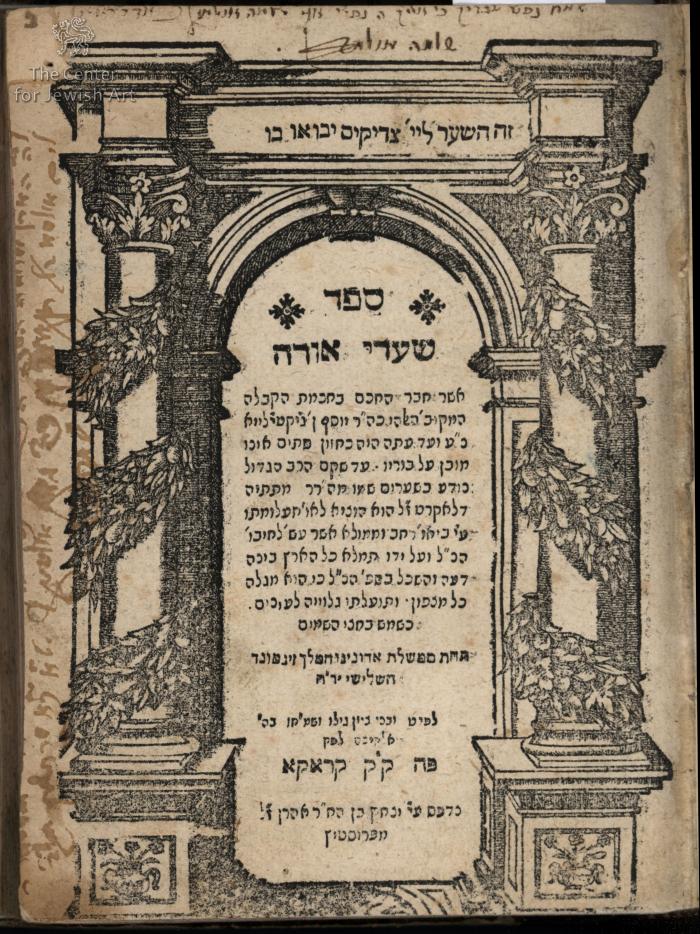
This text was prepared by William Gross:
A major, fundamental Kabbalistic text on the Sefirot by R. Yosef Gikatilla (1248 – c.1325). The work defines, explains and analyzes the ten Sefirot, relying heavily on the Zohar, but also containing many original departures from it. It was described by the Arizal as 'a key to understanding the mystical studies.' This edition is significant for its inclusion of the commentary of the kabbalist and astronomer R. Matthias b. Solomon Delacrut.
Title page with architectural frame – identical to the frame employed by the di Gara press in Venice. Initial word in decorative frame. Preface to the text includes a small line drawing of the Sefirot. Printer’s emblem showing a ram beside a bush.
R. Yosef Gikatilla, the foremost student of the noted kabbalist R. Avraham Abulafia, was born in Medinaceli, Castile and resided in Segovia. He began as a student of philosophy but later became an adherent of theosophic Kabbalah. A person of great piety and credited with miraculous deeds, R. Gikatilla was known as ba’al ha-nissim (master of miracles). Sha’arei Ora is his most famous work. He died at Peñafiel c.1325.
The Gross Family Collection includes a Latin translation of this Sha’arei Ora, “Portae Lucis”, on the cover of which is the first printed representation of the Sefirot (NHB.137).
The printer Isaac Prostitz, born in Prossnitz, Moravia, was sent at an early age to Italy by his father to learn the printing trade, accomplished at the Cavalli and Gryphios presses. When the latter press closed in 1568, Prostitz acquired their typographical equipment, including the letters, ornaments, and frames, and brought them to Cracow, where he was joined by the famous proofreader R. Samuel Boehm. Prostitz petitioned King Sigismund II Augustus on 15 October 1567 for the privilege of establishing a Hebrew press, which was granted to him and "his seed after him" to print the Talmud and other Hebrew books for a period of fifty years. Prostitz would, until his death in 1611, print more than 200 titles. The press was continued by his sons, Aaron and Issachar, after his death, and their sons after them.


